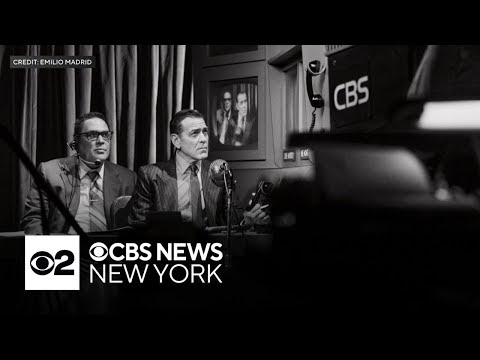Two nights ago, a timely reprise of Good Night, and Good Luck—a play adapted from the 2005 film—was released online for the public to see. In any other moment, it might be viewed as a well-produced historical reflection. But in the context of Donald Trump’s second term in office, the play hits with renewed urgency, serving as both cautionary tale and call to action.
Originally centered on broadcast journalist Edward R. Murrow’s confrontation with Senator Joseph McCarthy during the Red Scare, the story has now taken on fresh resonance. The lines between past and present blur as today’s media, academics, and citizens face rising pressures that bear a troubling resemblance to the paranoia and suppression of the 1950s.
Journalism in the Crosshairs—Then and Now
Murrow’s fight was against lies, fear, and demagoguery. So too is the current struggle. But unlike the centralized media of Murrow’s era, today’s information ecosystem is splintered, algorithmically manipulated, and awash in disinformation. What hasn’t changed is the threat posed by leaders who thrive on division, target the press, and dismantle democratic norms.
Trump’s return to power has already brought promises of retribution. Journalists are again labeled “enemies of the people.” Government critics face surveillance and smear campaigns. The line between public service and propaganda is growing thinner by the day.
Universities Under Siege
Higher education is once more a battlefield for truth. In Trump’s second term, the attack on academic freedom is no longer abstract. Several states have already defunded DEI programs, imposed ideological restrictions on curricula, and punished faculty for publicly criticizing the administration.
Like the loyalty oaths of McCarthy’s time, today’s political litmus tests threaten tenure, chill speech, and strip universities of their role as safe havens for independent thought. Student journalists are documenting this unraveling in real time—often with limited institutional support and growing personal risk.
A Digital Murrow Moment?
The online version of Good Night, and Good Luck two days ago is more than an artistic statement; it’s a cultural intervention. The timing—early in Trump’s second term—is a deliberate challenge to journalists, educators, and citizens to recall their responsibilities. The message is clear: silence enables authoritarianism, and truth requires courage.
But the stakes are higher now. The 1950s did not contend with AI-generated misinformation, billionaire-backed disinformation machines, or governors turning public colleges into ideological laboratories. This is a different kind of war—but the tools of resistance remain: reporting, documenting, teaching, organizing.
As we confront the rising tide of fear and repression, we might remember the words of Cassius in Julius Caesar:
“The fault, dear Brutus, is not in our stars,
But in ourselves, that we are underlings.”
The revival of Good Night, and Good Luck reminds us that we’ve been here before. And it asks: will we meet the moment again?
Edward R. Murrow once warned that a free press is only as strong as the people willing to defend it. In this reprise, it is not just the journalists who must rise to the challenge—but educators, students, artists, and anyone committed to keeping truth alive.
We urge readers to watch the movie online (the play is unavailable at this point). Let it stir your memory—and your conscience. Then speak out, before the lights go dim again.
Good night, and good luck.


